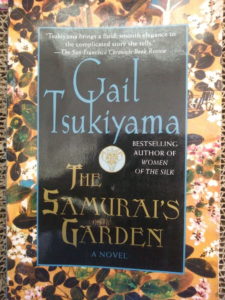The Samurai’s Garden by Gail Tsukiyama is one of the most culturally insightful books in Japanese culture that I have read.
It follows a young man, Stephen, who visits his father in Japan from China during the Second Sino-Japanese war. His father is Japanese but his mother is Chinese living in Hong Kong. He forms deep friendships with Matsu and Sachi, as well as finding his first love, Keiko. He has an affair with her, but never publically, for the Japanese looked down upon such relations between Japanese and Chinese.
Now Matsu is a quiet disciplined man, the housekeeper of Stephen’s father’s vacation home on the beach where Stephen spends his visit. He later meets Sachi, an old woman disfigured by leprosy living away from society in the mountains. Individuals with leprosy are forced into exile and are thought to bring dishonor to their families. Like the tradition of seppuku, Lepers could restore their own and their family’s honor by committing suicide. Sachi, among others, could not find the will to drown themselves in the ocean, but rather fled to the mountains. There they formed a small refuge and made a living. Matsu, as it turns out, was a childhood friend of Sachi. First overlooked by Sachi, Matsu finds her admiration and love by the effort he took to care for her and the other lepers after its outbreak. And so the story continues…
It touches on the Japanse culture of honor, purity, devotion, etc., read it, it’s good.
